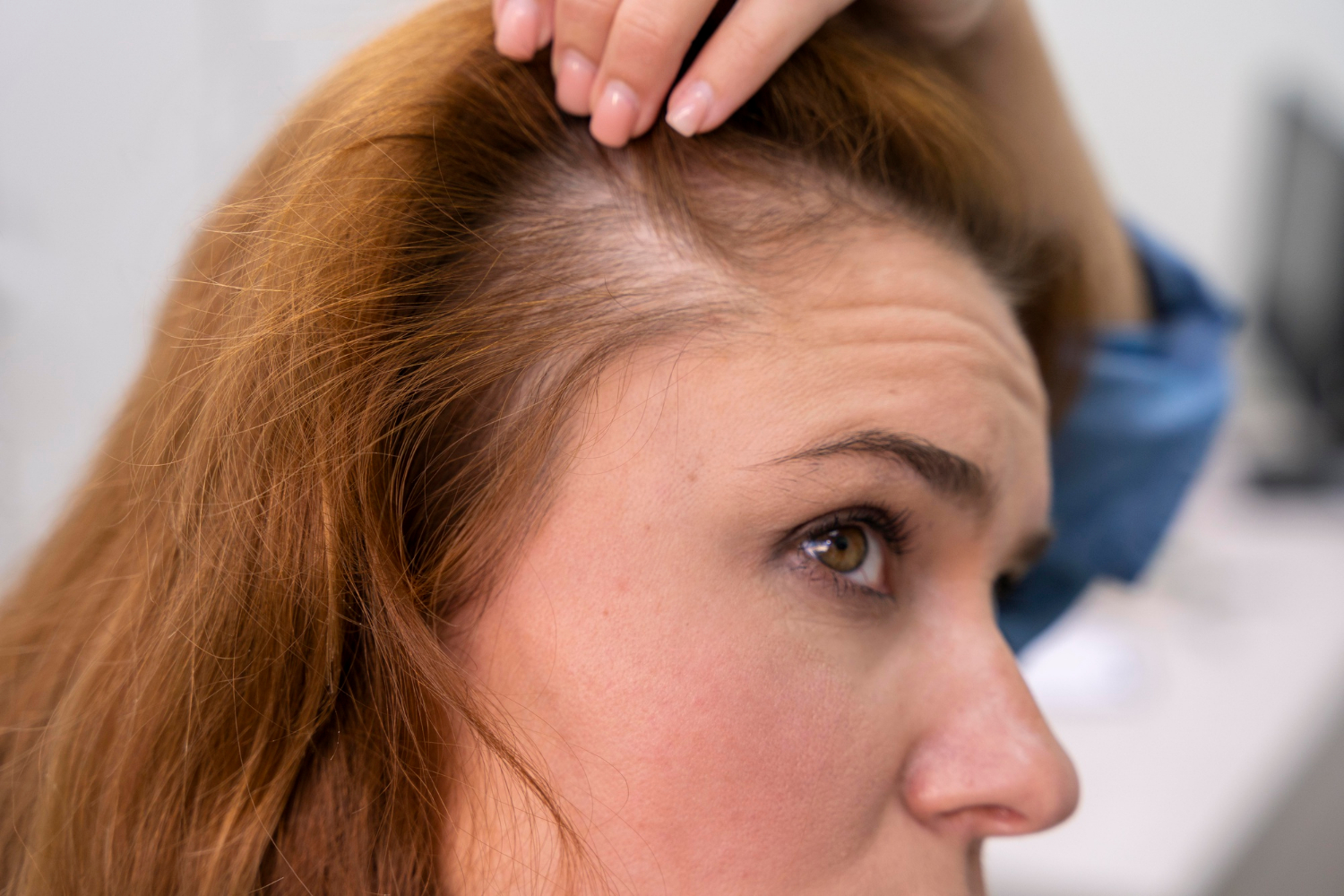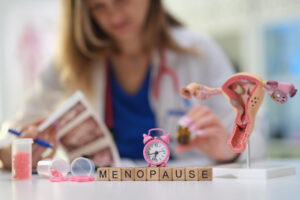Hair loss can feel like an added emotional burden when you’re already going through hormone therapy. Many people know these treatments can help balance hormones, improve mood, or support long-term health, but then they notice thinning at the crown or extra strands on their pillow. It’s frustrating and confusing, especially when you’re trying to feel better, not worse.
In Crystal Lake, this is a common concern for both men and women starting hormone therapy. While each person reacts differently, hair changes are something many begin to notice within the first few months. The good news is that you’re not stuck with it. Hair loss during hormone therapy often has an explanation, and with the right support, most people can figure out what’s going on and take steps to manage it.
Causes Of Hair Loss During Hormone Therapy
Hormones guide a lot of what happens inside your body, including your hair growth cycle. When those hormone levels shift, even for good reasons like improving thyroid function or balancing estrogen and testosterone, it can throw your body off, at least for a little while.
Hair follicles are especially sensitive to hormone levels. Some of the main changes that might trigger hair shedding include:
– Fluctuations in estrogen or progesterone
– Drops in testosterone (or increases, in certain cases)
– Changes in thyroid hormone levels
Each of these hormones plays a part in keeping your hair strong and growing. When they rise or fall too quickly, hair growth can pause and shedding may speed up. It doesn’t always happen right away. For some people, it shows up a few weeks or months after starting therapy.
Other things can also make hormone-related hair loss more noticeable, including:
– High stress levels
– Poor sleep habits
– Nutrient deficiencies, such as low iron or inadequate protein
– Underlying inflammation or autoimmune flare-ups
Think of it like this: hormone therapy is like trying to reset your body’s systems. If your gut health is off, your stress is high, or your nutrition is lacking, your body might not handle the hormone shift smoothly. That’s why it’s often not just about the hormones, it’s about everything connected to them.
For example, someone on testosterone replacement might be prescribed a dose that works well for their symptoms but notices hair thinning over time. If that person also has high stress, low zinc levels, or an unaddressed thyroid issue, hair loss might be even worse. That’s why no single cause is to blame, it’s usually a combination of things that need to be sorted out.
Tips To Manage Hair Loss During Hormone Therapy
Addressing hair loss during hormone therapy doesn’t have to be overwhelming. There are ways to keep your body supported during this time so you feel better and give your hair the best shot at staying healthy.
Here are some practical tips:
1. Watch Your Nutrients:
– Make sure you’re getting enough protein each day, since your hair is made of it.
– Include zinc, vitamin D, and omega-3 fatty acids in your diet. These are all important for hair and hormone health.
– If you aren’t sure what you’re lacking, ask your provider to check your levels through lab testing.
2. Support Your Scalp:
– Keep your scalp clean but not over-washed.
– Avoid harsh products that strip oils or cause irritation.
– Scalp massage can help boost circulation and ease tension.
3. Make Your Plate Matter:
– Eat whole foods with good fats, colorful veggies, and quality meats or plant-based proteins.
– Ditch the ultra-processed foods that drain energy and don’t give your body much to work with.
4. Monitor Your Stress:
– Chronic stress pumps out cortisol, which messes with hormone balance and fuels shedding.
– Try breathing exercises, walks outdoors, or stretching after work to reset your nervous system.
5. Be Honest With Your Provider:
– If you’re losing hair, don’t downplay it.
– Share symptoms early so they can assess your dosage, nutrient levels, or look into other health issues.
When hair loss shows up during therapy, it is often a sign that something deeper needs attention. It doesn’t mean the therapy is wrong. It means your body might want a little more support during the switch.
Alternative Treatments And Solutions
If you’ve already tried some of the basic tips and you’re still noticing hair loss, it might be time to think about other treatments. Choices can range from topical products to other therapies that target hair growth.
1. Topical Treatments:
– Products like minoxidil may help stimulate hair growth. It’s widely used and applied directly to the scalp.
– Look for shampoos and serums with ingredients like biotin, keratin, or caffeine that are known for hair strengthening benefits.
2. Nutritional Supplements:
– Supplements such as saw palmetto and biotin are sometimes used to support hair health. Speak with a healthcare provider before starting any new supplements to be sure they fit your plan.
3. Professional Consultations:
– More advanced options like laser therapy or PRP (platelet-rich plasma) treatments have become popular. These are handled by trained professionals and may offer more targeted support.
4. Other Non-Invasive Options:
– Scalp massages can help with stress and might improve circulation to the roots, supporting healthy hair.
If the basics haven’t made a noticeable difference in a few months, a professional consultation may be the right next step.
Staying Positive And Patient
Dealing with hair loss, especially during hormone therapy, can be tough. It’s easy to feel discouraged, but staying hopeful and being patient are powerful moves. Your body does not always respond right away, and that’s okay.
Remember to take care of yourself in ways that lift your spirits. Whether it’s walking more, practicing mindfulness, or picking up a hobby, investing in yourself can ease the emotional impact of hair loss.
Support from others goes a long way. Talk with people you trust, find a support group, or seek counseling if needed. Community and connection can help you feel seen and supported during this time.
Embrace Your Health Journey
Managing hair loss while going through hormone therapy in Crystal Lake doesn’t have to feel impossible. There are ways to handle the change with care, patience, and support. Begin by understanding what may be causing the hair loss. Then take steps like improving your diet, working with your provider, and adjusting self-care routines.
Hair loss during hormone therapy isn’t always permanent or a sign that your plan isn’t working. It often means there’s something your body is adjusting to or asking for. Listening to those signals is a smart and hopeful move.
Keep in mind, this is just one part of your health journey. With the right attention and resources, most people can find their way through it feeling confident and empowered to continue making progress.
If you’re looking for realistic, supportive ways to feel your best during this transition, learn how our personalized approach to hormone therapy in Crystal Lake can help. At Serenity NP Integrative Health, we focus on whole-body care to guide you forward with confidence and comfort.





